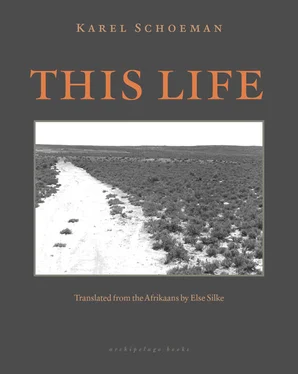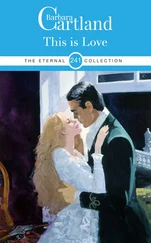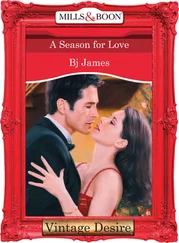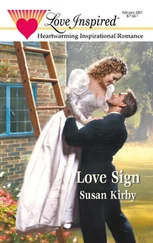Karel Schoeman - This Life
Здесь есть возможность читать онлайн «Karel Schoeman - This Life» весь текст электронной книги совершенно бесплатно (целиком полную версию без сокращений). В некоторых случаях можно слушать аудио, скачать через торрент в формате fb2 и присутствует краткое содержание. Год выпуска: 2015, ISBN: 2015, Издательство: Archipelago, Жанр: Современная проза, на английском языке. Описание произведения, (предисловие) а так же отзывы посетителей доступны на портале библиотеки ЛибКат.
- Название:This Life
- Автор:
- Издательство:Archipelago
- Жанр:
- Год:2015
- ISBN:978-0-914671-16-9
- Рейтинг книги:5 / 5. Голосов: 1
-
Избранное:Добавить в избранное
- Отзывы:
-
Ваша оценка:
- 100
- 1
- 2
- 3
- 4
- 5
This Life: краткое содержание, описание и аннотация
Предлагаем к чтению аннотацию, описание, краткое содержание или предисловие (зависит от того, что написал сам автор книги «This Life»). Если вы не нашли необходимую информацию о книге — напишите в комментариях, мы постараемся отыскать её.
considers both the past and future of the Afrikaner people through four generations of one family. In an elegiac narrator's tone, there is also a sense of compulsion in the narrator's attempts to understand the past and achieve reconciliation in the present. This Life is a powerful story partly of suffering and partly of reflection.
This Life — читать онлайн бесплатно полную книгу (весь текст) целиком
Ниже представлен текст книги, разбитый по страницам. Система сохранения места последней прочитанной страницы, позволяет с удобством читать онлайн бесплатно книгу «This Life», без необходимости каждый раз заново искать на чём Вы остановились. Поставьте закладку, и сможете в любой момент перейти на страницу, на которой закончили чтение.
Интервал:
Закладка:
It was because of Mother, always Mother, never Father. He was not a greedy or close-fisted person, but always willing to help. He liked company, even though he never said much himself, and over a glass of brandy he could even become jovial in his unassuming way; but his path was mapped out for him like everybody else’s, and usually he followed it resignedly. Only once or twice did I see him turn pale with suppressed anger and Mother yield to him without his having to raise his voice or even say much. She was the one who struggled to make ends meet and who saved so doggedly — do I exaggerate when I say anxiously, as if she were trying desperately to protect us from some danger only she was aware of, and no effort were too great to ward off the lurking danger? Perhaps this is an exaggeration, but not entirely. Perhaps it was the memory of a bitter and hungry youth that drove her to try and establish for herself safety and security, and fear was indeed interwoven with that memory. I do not know, I can only try, and cannot even say whether my efforts make sense — Oom Koos’s incidental remark after her funeral and Oom Ruben’s unexpected visit and that anxious scrimping and saving, these are the only means at my disposal. As a child on the farm I often played on my own near the old graveyard beyond the ridge where the old people had thrown out everything they had no further need of and among the stones I gathered shards of pottery and china or bits of blue or purplish glass. Sometimes, however, there were larger pieces among the fragments, just large enough to be able to make out something of the form or pattern of the original cup or bowl from the round shape or the ornamentation; and just so I have only the fragments of my memories from which I now have to try and recover the form and pattern of the past.
It was a lonely youth, though I was never aware of it myself, and furthermore I was the youngest child and only daughter. Between Jakob and Pieter, and again between Pieter and myself, there had been other children who had died, and only the inscriptions in the family Bible and the nameless stone mounds in the graveyard bore testimony to them, and only the three of us had survived. Jakob was the eldest son who always had to take responsibility and he was favoured slightly by Mother, as far as she ever showed any sign of favour or affection, so that there was a distance between him and me, regardless of that caused by the age difference and, besides, Jakob was a reserved and uncommunicative person. I was only a child when he died, and thus he remains scarcely more than a dark, silent figure on the fringe of my childhood world. “Blink Jakob” they called him, I remember now, and long after his death people who had known him sometimes still spoke of “Blink Jakob”. Contemptuously or admiringly, or perhaps both? I cannot say, neither do I know the origin of the nickname, but later they referred to him as a handsome man, and in her old age, on several occasions when Mother spoke of him to strangers, she also mentioned with a certain smugness that he had been a handsome man. Do I remember more, or is it only the memory of the nickname that conjures up further images: can I really remember something about a sleek horse, a gleaming black stallion I had feared as a child? That could have been the horse on which he used to ride through the kloof in the evenings, to Oom Wessel’s farm in the Karoo; or perhaps it is only my imagination. I was no more than a child when he died, ten or twelve years old.
Oh yes, and that he had inherited Mother’s impetuous nature and her fierce temper, that I still remember. Could that be why people smiled to themselves at the thought of “Blink Jakob”? He would lose his temper in a flash and was a hard master to the farm-hands, so that he was not well-loved by any of them. Perhaps he took after Mother’s people, and that might have been why she was sometimes partial to him and understood him best.
And Pieter — yes, Pieter was a different kind of person. Actually I never got to know Pieter much better than Jakob, for I lost both my brothers at an early age, when I was still a child, but between Pieter and me there was not such an age difference, and he had more time for his little sister than could be expected of an older brother. Sometimes he would make me little toys and even play with me when he was not being put to work on the farm. Pieter was more like Father’s people, smaller and slimmer than Jakob, with fair hair and blue eyes, and he was also more cheerful, had a quicker tongue and a livelier imagination, and was inclined to joke and tease: Pieter singing to himself while he worked, Pieter playing an old violin, or laughing on the dance floor in a haze of candlelight and fine, powdery dust. Why do I remember this now after all the years, why does that image present itself so unexpectedly? “Oh, but he could dance well!” Hesther Vlok, by then a middle-aged woman, once sighed, and it must have been her own memories that caused her to smile like that, for she was older than me and she might have been one of his dance partners. Pieter nimble and lean on the dance floor — it must have been at New Year, the dance I remember, when Sofie came to us as a bride and there was dancing. Pieter with his slim white body gripping the sheaves on the wagon, Pieter’s face at the window in the moonlight, Pieter’s face by the flickering light of a candle, Pieter running through the veld, laughing, running through fields of flowers in spring, stopping, his hair blowing in the wind. Later he never laughed or even smiled any more, irrevocably withdrawn in his silence, so that no one could still say what he was thinking or remembering.
Jakob and Pieter and I, but what can I say about myself? When I was a child we had no mirror, and so I never knew what I looked like: a thin, shy, silent child I must have been, just as later I became a thin, shy, silent girl. We had all inherited Mother’s passionate nature and her temper, but while the boys never learned to control their tempers or hide their feelings, I was taught at an early age to keep quiet, to obey and to accept, and the feelings I was never allowed to express must have been buried inside and continued to simmer deep under the surface. A thin, shy child on a seat in the corner, hemming a cloth or knitting a stocking, that no one took any notice of and whose presence was soon forgotten, so that they said things in front of me that otherwise would probably have remained secret, or showed feelings they would probably have tried to conceal if they had realised I was there to observe them. Mother’s face, suddenly pale, Father’s trembling hands, the hatred flaming from Sofie’s eyes for a moment — all this I saw and more, more than they could ever guess, and I stowed much of it away, to rummage among accumulated splinters and fragments now, at the end of my life, trying to understand the meaning of it all. I bent my head over my work, however, and tried not to make any sound or movement to draw attention to my presence; I learned, one might say, to pretend and dissemble where I remained seated in the corner all the years of my life, the unnoticed girl, the unmarried daughter, the spinster aunt, always somewhere in a corner of someone else’s home or at the fringe of the company where she did not belong, at the fringe of other people’s lives in which she played no part, busy watching and listening, busy observing, busy remembering.
So that was our family; but then there was also old Dulsie, whom I almost forgot, as one is inclined to forget about the servants, though she was with us for as long as I can remember. She came with Ouma from the Bokkeveld as a slave when Ouma got married, for her parents had given her the child as a wedding present, and years later when the slaves were freed, she stayed with us and helped to raise me. Dulsie always looked down on our other workers because she was the Ounooi’s own slave, as she said herself, and she slept in the house, in front of Ouma’s bed and later in front of the hearth in the kitchen, while they, the knegte and herdsmen, Hottentots and Basters, had to find a sleeping place in the outbuildings at night, or build shelters in the veld. She must have been quite old already when I got to know her; no, she must certainly have been old, because she had also helped raise Father, but, together with Mother, she still did most of the housework. Father always treated her with a certain respect, probably for Ouma’s sake; but Mother knew no respect, and when Father was not there Dulsie bore the brunt of her rage as much as anyone else.
Читать дальшеИнтервал:
Закладка:
Похожие книги на «This Life»
Представляем Вашему вниманию похожие книги на «This Life» списком для выбора. Мы отобрали схожую по названию и смыслу литературу в надежде предоставить читателям больше вариантов отыскать новые, интересные, ещё непрочитанные произведения.
Обсуждение, отзывы о книге «This Life» и просто собственные мнения читателей. Оставьте ваши комментарии, напишите, что Вы думаете о произведении, его смысле или главных героях. Укажите что конкретно понравилось, а что нет, и почему Вы так считаете.












